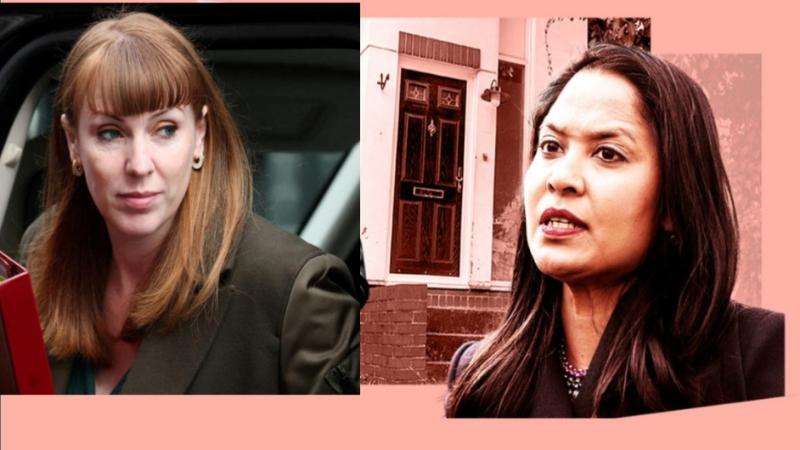Rushanara Ali, a significant figure and the UK's first British-Bangladeshi MP, appears to be facing growing challenges to her political standing in the Bethnal Green and Stepney constituency. Observations from local residents and commentators suggest that the long-serving Labour MP's approach may have changed, leading to a perceived disconnect from the grassroots concerns that once defined her political identity. Discussions in the East End hint that her position in a historically safe seat might be influencing her engagement with constituents.
The recent general election results clearly show a significant shift in the electoral landscape. While Labour achieved a national victory, Ali's once-substantial majority of around 37,000 votes in Bethnal Green and Bow dramatically decreased to just 1,689 votes in the newly defined Bethnal Green and Stepney. This much narrower margin was particularly striking, especially with the late entry of independent candidate Ajmal Masroor, who, with limited campaigning, secured a notable 14,207 votes, posing an unexpected challenge to Labour's traditional stronghold. This outcome suggests evolving voter sentiment and potential electoral volatility.
Community Engagement and Perceptions of Connection
Within the British-Bangladeshi community, comparisons have been drawn, with some suggesting parallels between Rushanara Ali's current trajectory and earlier discussions about her predecessor, Oona King, for whom Ali once worked. These discussions often focus on perceptions of MP accessibility and engagement outside of election periods. Constituents have reportedly questioned the frequency of her presence in the constituency. While her parliamentary office and email contact are available,this he reporter, however, found evidence that the email was not answered.A common sentiment among some constituents is a desire for more direct and visible interaction regarding their daily challenges. Such observations underscore the community's value for close relationships and direct representation.
Representation and Electoral Dynamics
A key point of discussion is whether Ali's continued success in Bethnal Green and Stepney, and its predecessor, Bethnal Green and Bow, has been heavily influenced by Labour's historical electoral strength in the area, alongside the substantial British-Bangladeshi vote. These constituencies have long been considered Labour strongholds, consistently delivering large majorities. However, the recent election results offer a new perspective on this dynamic, indicating a need for ongoing engagement to maintain long-standing loyalties.
Notable Parliamentary Actions and Public Discourse
Several incidents and parliamentary decisions during Ali's tenure have sparked public discussion, some dating back years:
- 2014 Gaza Ceasefire Vote: In a significant early decision, Ms. Ali resigned from the Shadow Education team to abstain on a House of of Commons motion regarding military action against ISIS in Iraq. She cited a belief that military action would "create further bloodshed and further pain for the people of Iraq." This action showed a willingness to diverge from the party line on sensitive foreign policy matters, a pattern observed in subsequent votes.
- 2023 Gaza Ceasefire Abstention: More recently, her abstention on a parliamentary vote for a ceasefire in Gaza in November 2023 generated considerable reaction within her predominantly Muslim constituency, where strong pro-Palestinian sentiment is widespread. Some interpreted this decision as prioritizing party discipline in a sensitive area.
- Starmer's Immigration Comments: Following Labour leader Keir Starmer's comments about the Bangladeshi community and immigration, which he later clarified, there was community discussion regarding Ms. Ali's public response. Some raised concerns about the perceived impact of her statements or influence on the party's stance on this issue, affecting sentiment among British-Bangladeshis.
- Grenfell Inquiry Link: A significant development in October 2024 involved Ms. Ali relinquishing her building safety brief as a housing minister. This followed reports of concerns from Grenfell survivors regarding her attendance at a conference sponsored by a firm criticized by the Grenfell Inquiry. While she retained her homelessness brief, the incident highlighted the critical importance of maintaining public trust, especially concerning the Grenfell tragedy. Reports indicated that Grenfell United, representing survivors and bereaved families, expressed concerns about her association with events linked to a company involved in the fire, leading to a change in her portfolio. This incident emphasizes the careful judgment required in balancing various affiliations with the imperative to support victims.
- Palestine Solidarity Group Vote: Her parliamentary vote concerning the activities of Palestine solidarity groups has reportedly contributed to ongoing discussions about her voting record and its alignment with strong pro-Palestine views within her constituency.
- Previous Campaign Challenges: During her initial campaign in 2010, Ms. Ali reportedly faced "vile personal abuse and smears," including unsubstantiated allegations about her personal life. These incidents illustrate the challenging political landscape she has navigated.
- Expenses Scrutiny: In 2015, an investigation into MP expenses revealed that Ms. Ali had billed £674,982 for costs related to her parliamentary work from 2010 to 2015, a figure noted as being above the London average. While she stated that expenses should reflect constituency profile and workload, such figures naturally attract public attention and scrutiny.
- Same-Sex Marriage Vote: Her 2013 vote in favor of the Same-Sex Marriage Bill drew diverse reactions, gaining support from LGBT+ activists and condemnation from some religious figures within her community, reflecting the complexities of representing varied constituent viewpoints.
Internal Party Dynamics and Future Outlook
The absence of a publicly prominent challenger from within the Labour Party for nomination battles in her constituency has been noted by some as potentially reflecting an internal party dynamic that might have influenced the level of internal accountability and attention to local concerns for the MP. This situation prompts questions about how internal competition fosters responsiveness.
The recent electoral results unequivocally demonstrate a significant shift in voter support, marked by a notable reduction in her majority. For an experienced MP in a historically safe seat, such a change in electoral fortunes indicates evolving public sentiment.
The Daily Dazzling Dawn sought comment from Ms. Rushanara Ali regarding the perceptions of constituent disconnect, her recent electoral performance, her parliamentary decisions on significant votes and personal issues. As of publication, Ms. Ali has not provided a response to these inquiries. The lack of a public statement, much like her perceived absence from the constituency, continues to be a point of discussion within a community increasingly eager for more direct communication from their representative.
While an MP's professional life is extensively documented, aspects of their personal life often remain private. Discussions sometimes arise regarding how an MP's personal circumstances, or the privacy surrounding them, might be perceived to intersect with their public role, especially concerning constituent connection. Questions have been raised in public discourse regarding her residence and its perceived impact on local engagement.
Do you think Rushanara Ali can regain the strong support she once had in her constituency?








.svg)
